Do Barack Obama and Angela Merkel Even Know What They Want From Russia?
Within the same news conference, President Obama declared economic sanctions against Russia a huge success and said Russia had invaded Ukraine.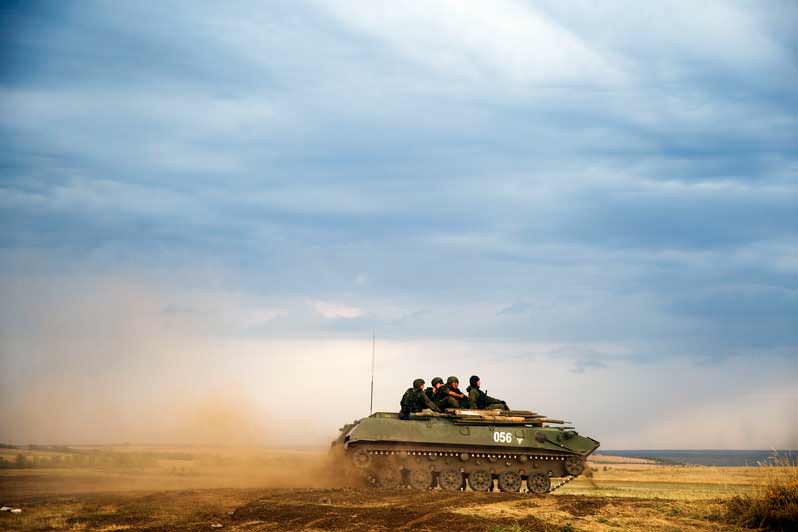 A Russian armored personnel carrier crosses a field about 6 miles from the Russia-Ukrainian border control point at Donetsk. AP /Pavel Golovkin
A Russian armored personnel carrier crosses a field about 6 miles from the Russia-Ukrainian border control point at Donetsk. AP /Pavel Golovkin
By Ivo Mijnssen and Philipp Casula
Before heading off to celebrate the Labor Day weekend, President Barack Obama took to the podium in the White House briefing room to blast Moscow. “Russia is responsible for the violence in Eastern Ukraine,” he said. “The violence is encouraged by Russia. The separatists are trained by Russia. They are armed by Russia. They are funded by Russia. Russia has deliberately and repeatedly violated the sovereignty and territorial integrity of Ukraine. And the new images of Russian forces inside Ukraine make that plain for the world to see.” The sanctions imposed by the West are devastating the Russian economy, the president claimed, and, therefore, he promised “more costs and consequences for Russia.”
The extent to which Russia is responsible for the crisis in Ukraine is a matter for another article. What is much clearer, and more often overlooked, is that those sanctions championed by the president are clearly not working, unless their desired effect is to make life more miserable for the workers and consumers of Europe, Russia and, most importantly, Ukraine.
Five months after the European Union imposed the first sanctions on Russia, Dutch Prime Minister Mark Rutte acknowledged Friday that they had “not worked.” The conclusion is not surprising in light of failed Russian-Ukrainian talks and Moscow’s evermore direct involvement in the conflict. In reaction, EU leaders have announced their intention to further tighten sanctions. Jose Manuel Barroso, the outgoing European Commission president, even cautioned at a summit in Brussels on Saturday that “we may see a situation where we reach the point of no return,” and Lithuanian President Dalia Grybauskaite escalated the rhetoric at that same meeting, warning of “war” between Russia and Europe. The exact goals sanctions are supposed to reach and whether they are the appropriate tool at all remain unclear.
Western governments, led by the European Union and the United States, first imposed sanctions on Russia in March. As events unfolded in Eastern Ukraine, escalating into a civil war, and especially since the mid-July downing of a Malaysian airliner by one of the belligerents, those Western governments that had initially been hesitant stepped up their measures against Russia, expanding the list of entities and persons targeted by asset freezes and visa bans. Key Western governments, including Australia, Canada and Norway, have imposed their own sanctions that are closely linked to those of the U.S. and the European Union. Even neutral Switzerland has implemented its own package.
The declared aim of the Western sanctions is to push Russia to a de-escalation of the crisis in Ukraine. However, it remains rather murky which steps exactly Russia has to take that would be regarded as sufficiently defusing. Secondly, history casts doubt that sanctions are a tool that can actually bring some form of de-escalation.
The costs of these policies for the Europeans are much larger than those for the United States. The European Union is not only closely linked to Russia economically, it is also more vulnerable to countersanctions. In 2013, EU countries exported goods valued at $160 billion to Russia — compared with U.S. exports of about $12 billion. The European Commission estimates the costs of sanctions for European companies at roughly one-third of total exports per year. Large European economies’ growth rates, still recovering from the financial crisis, will most certainly suffer, and the sanctions might contribute to a further slowing down of European economies.
The Russian ban on food imports (mostly from the European Union) announced last month has hit exporters of agricultural goods hard, particularly Greece and Poland. Estimates put the price tag at $7 billion in reduced exports, with additional losses because of lower prices in domestic markets. The European Commission has already decided to compensate for the losses of specific producers.
The effects of this ban on Russia are less apparent. Russian producers will be able to substitute for at least part of the losses, but many consumers fear that quality standards will suffer as a result of the quick transition. Latin American countries, such as Argentina, Ecuador and Brazil, in particular seem eager to fill the gap left by European producers, but they have to consider the political costs of such a move, as they have a strong interest in Western markets. Additional food imports may be funneled through third countries like Belarus. Moreover, many economic observers fear that Russia’s inflation will worsen if food prices rise: Compared with the beginning of the year, it has already doubled to 11.2 percent in the food sector.
Overall, the sanctions on both sides appear modest so far, because they explicitly exclude the crucial energy sector. Although some technology used in gas and oil extraction and Crimean energy companies are featured on the Western list of sanctions, neither Europeans nor Russians seem interested in further politicizing this aspect — understandable in view of the extreme mutual dependence. U.S. and European oil giants, first and foremost Exxon and BP, have billions invested in Russian joint ventures, stakes that they do not want to have jeopardized. Sanctions in the energy sector are a double-edged sword for both sides — whoever wields it gets cut.
So far, sanctions clearly do not work: Russian oligarchs have enough assets to make up for the losses resulting from the restrictions imposed on them. Consumers in Moscow and St. Petersburg will have to get used to meat from Argentina instead of meat from the U.S. and possibly, to price hikes. Unless the sanctions become systemic and include whole sectors of the economy, their power will remain limited. On the political level, however, there is an obvious dissatisfaction among those directly targeted by the sanctions.
Despite the limited impact on ordinary Russian people, the message sent to the Kremlin is clear: Moscow is increasingly isolated from its most important partners and excluded from key sites of decision making, like the G-8 summit. Although other countries that are crucial for Russia, such as China and India, did not follow the Western lead, trade and political ties with Western Europe are simply on another, much larger, scale.
On the ground in Ukraine, results have been nil. There is no visible lessening of support for insurgents or a softening of Moscow’s position on the matter. On the contrary, after military successes by the Ukrainian army, Russia has allegedly decided to upgrade its aid, no longer limited to military hardware but seemingly also encompassing soldiers on the ground. Although labeled as “volunteers,” these Russian troops and their heavy equipment are unlikely to cross the border into Ukraine without explicit backing from their superiors. These troops contributed decisively to reverting some of the previous Ukrainian successes. The sanctions have caused a defiant political response in the Russian political elite — with many calling for an expansion of Russian countermeasures.
In the diplomatic sphere, Russian officials are trading blows with their European and Western counterparts over the legality of the sanctions. All insist that their sanctions are legal and in conformity with WTO rules, whereas the others’ represent illicit, politically motivated trade restrictions. In its resolution, the European Commission attributes its sanctions directly to what it calls “Russia’s actions destabilizing the situation in Ukraine.”
Russia, on the other hand, argues that its national food security is in danger. Vladimir Chizhov, the Russian permanent representative to the EU, said that since the new Western sanctions hit banks strongly involved in financing Russian agriculture, Western producers got an unfair competitive advantage, which clashes with WTO regulations.
The Russian argument, unlike the European one, follows the letter of WTO rules. They stipulate that sanctions are justified only if a country’s national security is threatened. Ukraine could use such a justification for sanctions against Russia. It’s a stretch to apply that logic to the U.S. or the European Union.
Sascha Lohmann, a fellow at the state-sponsored think tank German Institute for International and Security Affairs, points out that even if sanctions are not in conformity with WTO rules, they are not necessarily illegal according to national and international law. He doubts whether the various actors will use the national security argument in case of a possible suit in front of a WTO conflict resolution panel: “[S]o far, there has existed an implicit transatlantic agreement not to call upon the WTO because an invocation of this clause has the potential to undermine the entire set of rules,” he told Truthdig. It is significant that all sides are so far hesitant to sue, even though they declared their intention to do so. Even in case of a WTO ruling against Western sanctions, however, Lohmann considers it unlikely that they would be taken back.
What is mostly ignored in the discussion about sanctions is the huge political symbolism involved in their application. Practical results are mixed, as can be seen in the sanctions against Cuba (since 1961), Iraq (1993-2003) and Iran (since 1979, and on a multilateral basis since 2006). Only in the last case could sanctions be credited with increasing a government’s willingness to sit down at the negotiating table. Cuba and Iraq, in contrast to Iran, point to the failure of sanctions and at huge cost in humanitarian terms. Not only did the sanctions directly harm the population, they also provided a pretext for the regimes’ policies, bolstering their grip on power and blaming the West for their countries’ malaise. The relative modesty of sanctions against Russia may also stem from this historical experience.
Hence, we have to look somewhere else for the purpose of sanctions. The case against Russia is telling. In the troubled relations between the European Union and the U.S., which quarrel about free trade and espionage, the sanctions against Russia provide a formidable case of unanimity, even if the less exposed American government is pressing for an even tougher stance. They also suture the multiple rifts among EU member states, divided about the costs of the economic crisis and generally about the approach vis-à-vis Russia. As long as the EU does not touch the energy and financial sectors, Europe’s costs remain manageable and are outweighed by the morale gains. Finally, sanctions fulfill the important role of reconfirming certain norms and values, including international law and a state system grounded on the inviolability of international borders.
Consequently, there are two scenarios for the foreseeable future, depending on whether economic interest or values gain the upper hand. According to the first scenario, and in spite of the tough rhetoric, all sides work toward a quick but face-saving de-escalation of the crisis. Negotiations between Ukraine and Russia in Berlin have shown meager results, but at least both sides continue the conversation — with Ukrainian President Petro Poroshenko and Russian President Vladimir Putin meeting in Berlin and Minsk, although Putin stresses that his Ukrainian counterpart should negotiate with the separatists directly. Moreover, the mutual interdependence and the pressure of economic actors on their governments will most likely prevent an uncontrollable intensification of sanctions. There is simply too much to lose over Ukraine, and Europe and Russia are too strongly entangled.
The second scenario stresses European values, state sovereignty, the inviolability of national borders, nonintervention by foreign powers and the peaceful resolution of conflict. Poland, the Baltic States and Ukraine itself strongly emphasize this aspect. But the EU — in contrast to the U.S. — is not a unitary state, and countries like Cyprus, Slovakia and Hungary fear the repercussions of sanctions on Russia. However, with a continued civil war in Ukraine and Russia’s ambiguous role in it, further sanctions cannot be avoided. The new round of sanctions discussed by the EU also points in the direction of an escalation: The stated goal is to increasingly target the financial and energy sector, for example with an exclusion of Russia from the SWIFT international banking system.
However, values and interest are not necessarily at odds. As the influential Swiss employer association Economiesuisse has recently pointed out, “the application of international law is also in the interest of the economy.” Indeed, the Russian and Ukrainian markets have been characterized by volatility and legal insecurity since their liberalization back in the 1990s, and the gross violation of international law — not to mention armed conflict — further unsettles investors, both foreign and domestic.
Independently of future events, the Ukraine crisis has led to a deep and lasting alienation between the West and Russia. The “Westernizers” in the Russian political elite, those most inclined to a further rapprochement with the West and who had their heyday under Boris Yeltsin and then again under Dmitri Medvedev, have been completely muted. Likewise, the West seems to have given up on Putin, who, according to German Chancellor Angela Merkel, is “living in another world.” Although this statement bluntly reflects a lack of understanding about Russia’s actions, it also highlights the estrangement between Putin and the leader of the Western country that is most closely connected to Moscow. Relations between Russia and Europe will thus remain strained for the time being. At the moment, the dangerous carousel of escalating rhetoric, stronger sanctions and military support for the warring parties in Ukraine seems unstoppable.
The nation that is losing most in the short and long run, however, is Ukraine itself, which bears the brunt of civil war and alienation from its biggest neighbor. The international community is also losing, having relied on the cooperation of the superpowers for the solution of pressing problems such as the civil war in Syria, the rise of the Islamic State, and nuclear disarmament.
Ivo Mijnssen holds an M.A. in Eastern European history and sociology from the University of Basel, Switzerland. His publications include the study “Back to Our Future! History, Modernity, and Patriotism According to Nashi, 2005-2013.” He is currently working on his Ph.D. in Soviet war memory and as a freelance journalist based in Europe.
Philipp Casula holds a Ph.D. in sociology and is a research fellow at the University of Zurich, Switzerland. He specializes in Russian affairs and political theory.
Your support matters…Independent journalism is under threat and overshadowed by heavily funded mainstream media.
You can help level the playing field. Become a member.
Your tax-deductible contribution keeps us digging beneath the headlines to give you thought-provoking, investigative reporting and analysis that unearths what's really happening- without compromise.
Give today to support our courageous, independent journalists.

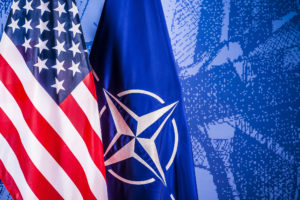
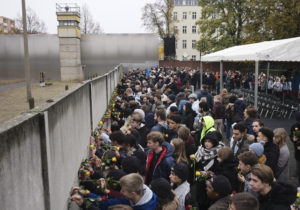

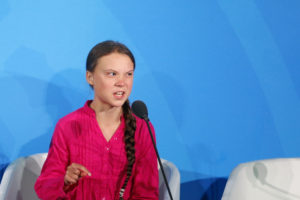
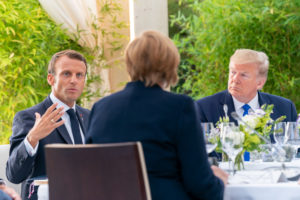
You need to be a supporter to comment.
There are currently no responses to this article.
Be the first to respond.